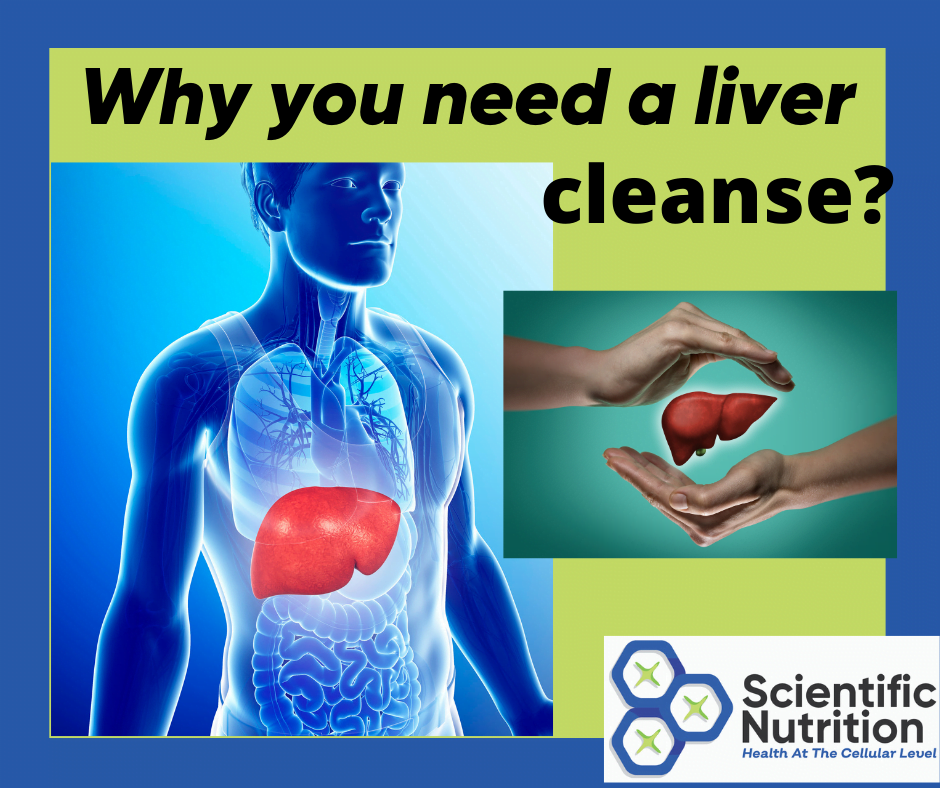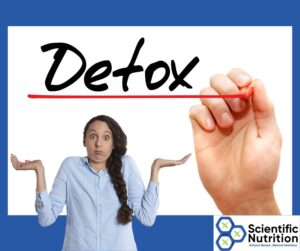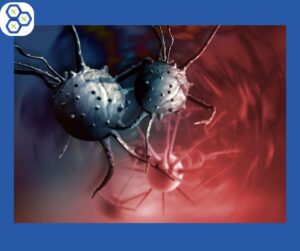What does the liver do?
Your liver is primarily responsible for detoxifying and many functions of digestion. It is responsible for metabolizing proteins, carbohydrates, fats, amino acids, and storing vitamins or minerals.
The liver regulates your glycogen (sugar) storage, helps to decompose used red blood cells while accounting for approximately 20% of your oxygen consumption while at rest. It acts as a reservoir for 10% of your blood supply if needed and a blood protein called albumin. This precious organ is the main source of red blood cell production for a fetus in its first trimester during pregnancy.
Your liver also breaks down your insulin as well as converting ammonia into urea to be urinated out. An enzyme called catalase is produced in the liver to break down oxidizing hydrogen peroxide into water and oxygen. The liver works as a blood detoxification system.
What happens if your liver is clogged or toxic?
- Thyroid hormone T4 will not be converted to T3 for energy which will cause energy loss at the very least.
. - Your bile will be “dirty” as 2/3 of it is recycled to break down fats. This thick and toxic bile can lead to slow bowel motility and digestion issues. Bile is used for fat digestion, detoxification, and without enough of it, diarrhea can occur.
. - Enzyme production will be slow or severely impaired.
. - Protein utilization will be weak resulting in muscle loss and sluggish fat-burning abilities.
. - Estrogen disruption leads to a higher body fat due to imbalances controlled in your liver. Too much estrogen will result in excess fat storage as the liver is not turning it off.
What are the symptoms of needing a liver detox?
- Belching in the gut and bloating due to slow digestion along with increased bacteria growth.
. - Flatulence and loose or fatty stools can be common regardless of dietary changes but worsened with fatty or rich foods.
. - Swelling of the lower extremities or coldness.
. - Fatigue and feeling tired all of the time regardless of a good night of sleep or you wake up in the middle of the night.
. - Insomnia is due to low melatonin production in the liver that helps you in regulating your circadian rhythm sleep cycles.
. - Dark urine despite being hydrated or dark under-eye circles that are puffy. These are also kidney-related issues.
. - “Liver” headaches occur frequently.
. - Easily angered or short-tempered (can be Iron toxicity affecting the liver).
. - Weight gain! Slow metabolism due to hormone disruption with your thyroid or protein hormones adiponectin or adipokine that regulate fatty acids and glucose levels. Without proper enzyme production, proteins are not utilized correctly causing muscle loss. Weight loss is difficult and not happening as it should. Typical weight gain will happen around the midsection due to high cortisol levels.
. - Chemical sensitivities due to toxic levels of pollutants and heavy metals.
. - Low energy is due to the sluggish conversion of glucose to glycogen. The toxic burden disrupts energy regulations.
. - Inadequate melatonin production in the liver affects the circadian rhythm that allows deep sleep to clear the brain of cerebrospinal fluid debris.
. - Food sensitivities or allergies to grains, soy, dairy, nuts, chemical scents, or cleaning agents triggering histamines. Skin rashes, nausea, and lightheaded feelings can occur when exposed.
. - Premature wrinkles, dry skin, or skin issues such as eczema, acne, or psoriasis.
If you see a pattern of 3 or more, you can assume you have to detoxify your liver.
What could damage the liver?
-Stress
-Heavy metals
-Standards American Diet
-Toxins & chemicals
-Alcohol
What is fatty liver disease?
Excessive fat storage in the liver and sugar stored in the cells as triglycerides. If these triglycerides increase by more than 5% a diagnosis of fatty liver can be given. This disease can progress into fibrosis, cancer, or liver failure. Liver cells can appear similar to liver disease caused by alcoholism.
If one has a body type that accumulates excess fat around the midsection rather than their hips or has adult-onset diabetes, they are at a higher risk of developing fatty liver.
What are some symptoms of fatty liver disease?
- Itchy or irritated skin that becomes a thick and flaking rash. Hands and feet may be red with visible veins.
. - Excessive sweating due to the overworked liver.Exhaustion, weakness, disorientation, slow speech, confusion, memory loss, and mood changes.
. - Loss of appetite with rapid weight loss caused by malnutrition.
. - Dark yellow urine is not due to dehydration, infection, enzyme deficiency, or gallstones.
. - Persistent vomiting, nausea, acid reflux, and indigestion.
. - Weight gain along with high LDL cholesterol.
. - Easily bruised due to impaired blood clotting platelet proteins.
. - Any uncontrolled seizures, reflexes, eye movements, or neurological impairment due to high bilirubin.
. - Painful or tenderness in the upper right abdomen or lower right part of the rib cage.
. - Retaining fluid in the lower extremities.Constipation or swinging from diarrhea back to hard stools. It may be pale, bloody, or tar-like.
. - Fluid or swelling in the abdomen due to cirrhosis.
. - Yellowing of eyes or skin due to the inability of bilirubin removal and waste elimination.
What metals can cause fatty liver disease?
Heavy metals such as Cadmium, Copper, Arsenic, Mercury, Lead, and Nickel can contribute to fatty liver. This causes it to decrease its ability to detoxify, lose weight or produce energy. The spaces that should be available to store essential nutrients are taken. The ability to process fats or perform enzymatic or chemical processes is significantly decreased. Some heavy metals can mimic estrogen disrupting hormones.
As I coach clients in detoxifying from the inside pushing out as well as using modalities to pull from the outside in.
If you are ready to reclaim your quality of life from the cellular level, LET’S CHAT about your health goals!
To read more on detoxifying the liver after booking a call or how magnesium effects weight loss.
Copyright Scientific Nutrition, LLC 2021




